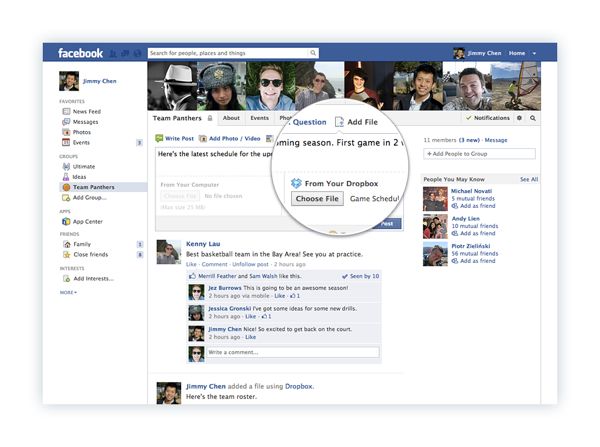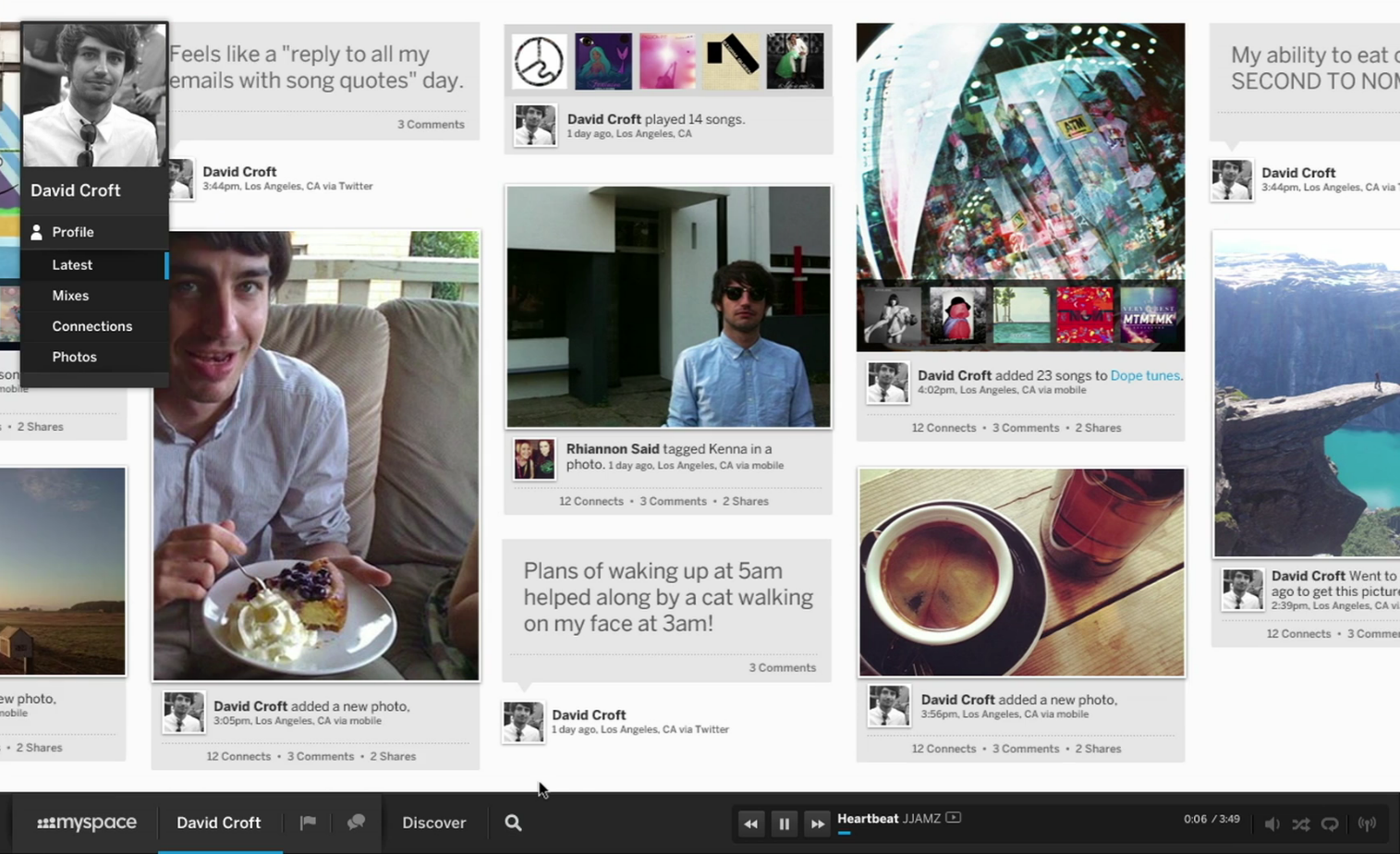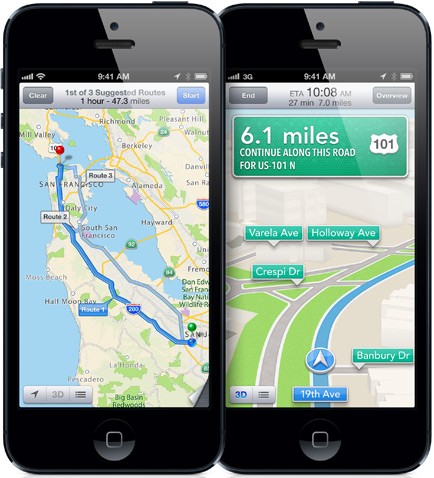
Happy Birthday Google (belated)
If you went to Google.com today, you probably noticed the logo was replaced with a fun little birthday cake animation celebrating 14 years of incorporation. Google was incorporated on Sept. 4th 1998, but chose today to celebrate the birthday. What does it matter when they celebrate, after all, Google has had a great year.
In April, Google released a concept video about Project Glass, fancy glasses with computers in them. In May, the search giant closed the purchase of Motorola Mobility. During the annual developer conference in June, Google made a lot of announcements, among them: Android 4.1, Nexus 7 tablet, Nexus Q and creepy but useful Google Now. The fun: skydiving, bicycles and rappelling down the side of a building. Big surprise: event participants could purchase a developer version of Google Glasses.

LinkedIn identifies the top-10 endangered office tools and trends
The office workplace is continually evolving. New technologies and trends -- like cloud computing and BYOD schemes -- are becoming more and more popular, but not every firm is willing to embrace the future, and many are stuck firmly in the past.
LinkedIn, the world’s largest social network for professionals, surveyed more than 7,000 members across the globe and asked them which of the current office tools and trends they expect to be extinct in five years’ time, combining the answers to produce the following top 10:

10 issues that erode cloud confidence
Cloud computing is finally beginning to mature to the point where it’s an attractive proposition for an increasing number of enterprises and small businesses, but even so many firms are still very hesitant to make the move online.
A new study jointly undertaken in the second quarter of 2012 by the Cloud Security Alliance (CSA) and ISACA identifies 10 key concerns perceived to limit acceptance and reduce the benefits of cloud computing. The Cloud Market Maturity study, which can be read in full here, surveyed more than 250 cloud users, providers, consultants and integrators from nearly 50 countries, and highlightes the following points as being the areas where confidence is weakest:

Facebook Groups get Dropbox file sharing, but not SkyDrive
Popular cloud service Dropbox has a new ace up its sleeve -- file sharing in Facebook Groups.
Dropbox integration within Facebook Groups is addressed to users of both services that seek to distribute and share cloud-stored information with other group members, with the added benefit of having the shared files updated if they are edited on Dropbox. It's an interesting feature which might be of great interest to Facebook users wanting an easy way of sharing pictures, videos or documents uploaded to Dropbox.

Dropbox 1.5.34 experimental previews new menu, Retina Display support
The desktop client for the ever-popular cloud storage service Dropbox has been updated with a new experimental build. There are a number of new features to explore in this latest release, but the most obvious is the newly redesigned menu. This is a neater affair than in previous versions, providing an overview of the latest activity as well as access to additional options.
These extra features include pausing files transfers, as well as sharing and restoring files. The new menu is only available to OS X and Windows users -- anyone running Linux misses out for the time being -- and Mac users also benefit from new Retina Display support as well as a new batch of great-looking icons.

Google Apps' terrible mistake
Update: Or was it mine? I read the support document to mean "download" as "open" rather than "save". If that's the case I stand corrected, not something you see often in my stories. Damn, who's the jackass now? :)
Some days feel like I live in a parallel universe. How did I miss this? On October 1, Google Apps drops support for Office 2003-07 formats. That means no way to download .doc, .ppt or .xls documents. Am I the only person thinking this ranks among the mothers of jackass ideas?

Chrome 22 is available -- get it NOW!
Google has released Chrome 22 FINAL, with the promise of improvements for Windows 8 users, gamers and those using HiDPI and Retina screens.
Chrome’s gaming enhancements revolve around support for the Pointer Lock JavaScript API. Otherwise known as "mouse lock", it allows sites to “capture” the mouse and provide the user with an immersive experience that isn’t constrained by the mouse cursor’s position relative to the edges of the browser window.

New Myspace: gorgeous, but who will use it?
Let's be honest, the news that Myspace is being revamped probably doesn’t have you jumping for joy and punching the air. In fact, I expect your response is probably similar to mine -- a little bit of interest mixed with a lot of "so what?" Myspace was the number one social network in the days before Facebook and Twitter, but now it’s a faded and largely forgotten web presence used by people who should have let go and moved on a long time ago.
But before you dismiss the revamp entirely, as I nearly did, it’s at least worth watching the teaser video Myspace just released because, as it turns out, the completely rebuilt service is beautiful, glossy and -- rather surprisingly -- it might just have you wanting to try it out. I know. Using Myspace! What's next, lobbying Yahoo to bring back GeoCities?

Bitrix24 gives away free cloud-based social intranet to startups
As Microsoft’s recent $1.2 billion Yammer acquisition proves, there’s a growing demand for enterprise social networks at the moment. Big name firms like Citrix and SalesForce have invested heavily in the popular communications trend, and Bitrix24 has seen some 10,000 SMBs sign up to use its cloud-based service since the May launch -- helped in no small part by the fact it’s entirely free for companies with 12 or fewer users.
Buoyed by its growing user base, Bitrix24 now targets startups with a $2.4 million program designed to popularize social intranet use at firms that might consider it out of their reach for one reason or another. The company plans to do this by giving away a thousand one-year subscriptions to its flagship Professional Intranet plan (worth $2,400 each) and all companies need do to be considered for one of these grants is to fill out the short application form on the company’s website.

Microsoft enters the Windows 'RT era'
I'm having one of those "duh" moments this afternoon, actually it started in the AM. Gartner analysts today profess the obvious: Windows 8 is a gamble, but one Microsoft must make to stay relevant. Really? Like we haven't said similarly here at BetaNews, and others elsewhere, for months. Given, the only good news today seems to be iPhone 5, and we're all so tired here of promoting Apple's Jesus Phone (could the Second Coming really get this much press), anything Windows 8 is welcome.
Something more: Gartner analysts finally go on record clearly stating that the post-PC era -- what I call the cloud-connected device era -- is here; not coming someday, but upon us now. Well, the transition phase anyway. That's worth putting on record for your reference and our future stories.

Major takeaways from the first days of Salesforce's Dreamforce '12
Maybe it wasn't drool-worthy enough for heaps of fanboys to liveblog, but Leading Cloud CRM provider Salesforce has already rolled out a host of big news at its week-long Dreamforce conference in San Francisco. Some of the news has been in the form of new product unveilings and new partnerships that focus primarily upon expanding Salesforce's social CRM functionality, and growing its business into newer, less-trodden territory.
Some of the news has taken the form of progress updates on Salesforce as a company, and on the state of enterprise cloud business as a whole. Those who are acutely aware of bubble-like investment opportunities where growth is fast but returns on investment are uncertain will want to take note.

What do you think of iOS 6?
Today, two days before iPhone 5 launches, Apple releases iOS 6. We'd like to know what you think of the software, particularly compared to the previous version. Several features are sure to cause reaction, with Facebook integration and Apple's new maps app, which replaces the one from Google, being high among them.
To be honest, given my Apple boycott and iPhone-toting daughter going off to college, I have no iOS device for testing. I can't review, and my best Apple-using writers are in Europe and likely won't blast out anything until tomorrow. But we need reaction today, particularly if iOS 6 turns out to be the update some of you won't want to apply. Judging from some of the reaction on Twitter, many of you should wait -- lest Apple Maps directs you to the river bank instead of your local financial institution.

SkyDrive files get redundant protection from your stupid self
Microsoft on Tuesday announced it has added recycle bin functionality to its SkyDrive cloud storage and collaboration suite, adding yet another layer of redundancy to the service to make sure the unthinkable doesn't happen and you actually delete a document.
I've "accidentally installed" plenty of things that have made me want to punch my own teeth out, and plenty of my work files have become corrupted, or have crashed before I could save changes…but I can say with some degree of confidence that I've never accidentally deleted a file. Maybe I'm some kind of keystroke wizard or something, because Microsoft likes to make extra sure people don't mistakenly delete something they need.

Public cloud spending reaches $109B, tops $206B by 2016
The public cloud is undergoing dramatic changes as spending soars. Gartner forecasts a $109 billion market this year, up 19.6 percent from 2011. While Business Process as a Service (BPaaS) dominates the market today, public cloud spending rapidly shifts to Infrastructure as a Service (IaaS) looking ahead.
"The total public cloud services market size in 2011 was $91.4 billion, and it will grow to $206.6 billion in 2016", Ed Anderson, Gartner research director, says. "As the market grows, IaaS will become a larger part of the overall market, while the market share of cloud management and security services will grow as well".

Moving to the cloud is about aligning expectations with realistic outcomes
Kent Christensen, Datalink's Virtualization practice manager, spoke to me recently and offered some tips for any companies thinking about moving to the cloud.
Datalink provides datacenter services and solutions for mid-sized to enterprise organizations and consults, designs, integrates, implements, and supports and manages solutions from leading manufacturers like Cisco, EMC, NetApp, VMware and others. This encompasses both private cloud solutions and public/hybrid cloud solutions.
